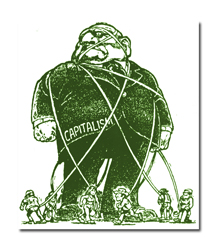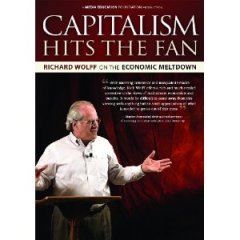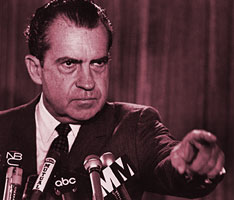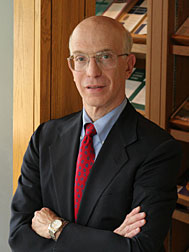 This is an incredible lecture that everyone needs to peep that breaks down the current state of affairs with our economy. This cat Professor Richard Wolff is a beast when it comes to this as he lets us know that what is going down goes beyond money.. The quality on these clips aren’t all that great.. You can get better qualities at his website..http://www.capitalismhitsthefan.com/
This is an incredible lecture that everyone needs to peep that breaks down the current state of affairs with our economy. This cat Professor Richard Wolff is a beast when it comes to this as he lets us know that what is going down goes beyond money.. The quality on these clips aren’t all that great.. You can get better qualities at his website..http://www.capitalismhitsthefan.com/
Below is a more detailed description of what’s on these clips…They come in 9 parts
With breathtaking clarity, renowned University of Massachusetts Economics Professor Richard Wolff breaks down the root causes of today’s economic crisis, showing how it was decades in the making and in fact reflects seismic failures within the structures of American-style capitalism itself. Wolff traces the source of the economic crisis to the 1970s, when wages began to stagnate and American workers were forced into a dysfunctional spiral of borrowing and debt that ultimately exploded in the mortgage meltdown. By placing the crisis within this larger historical and systemic frame, Wolff argues convincingly that the proposed government “bailouts,” stimulus packages, and calls for increased market regulation will not be enough to address the real causes of the crisis – in the end suggesting that far more fundamental change will be necessary to avoid future catastrophes. Richly illustrated with motion graphics and charts, this is a superb introduction designed to help ordinary citizens understand, and react to, the unraveling economic crisis.
Capitalism Hits the Fan pt 1-Three Things the Economic Crisis is Not
http://www.youtube.com/watch?v=9pOD7RFpOGI
Capitalism Hits the Fan pt 2-How We Got Here: American Exceptionalism
http://www.youtube.com/watch?v=6x_qnazVW_U
Capitalism Hits the Fan pt 3-History Interrupted: The Trauma of Flat Wages
http://www.youtube.com/watch?v=KHL_jEY2LIw
Capitalism Hits the Fan pt 4-Coping with Trauma: The People’s Response
http://www.youtube.com/watch?v=A-4Ot3SlyUU
Capitalism Hits the Fan pt 5-The Meaning of the Trauma for Business
http://www.youtube.com/watch?v=vNqwp37sHYg
Capitalism Hits the Fan pt 6-Bust and No Boom In Sight
http://www.youtube.com/watch?v=guHnKFQUeVo
Capitalism Hits the Fan pt 7-What Won’t Work: Re-Regulation
http://www.youtube.com/watch?v=ZpDYuXOOd8g
Capitalism Hits the Fan pt 8-So What Might Work?
http://www.youtube.com/watch?v=sAAxzI_ZPRM
Capitalism Hits the Fan pt 9-Beyond Free Markets and Regulati








